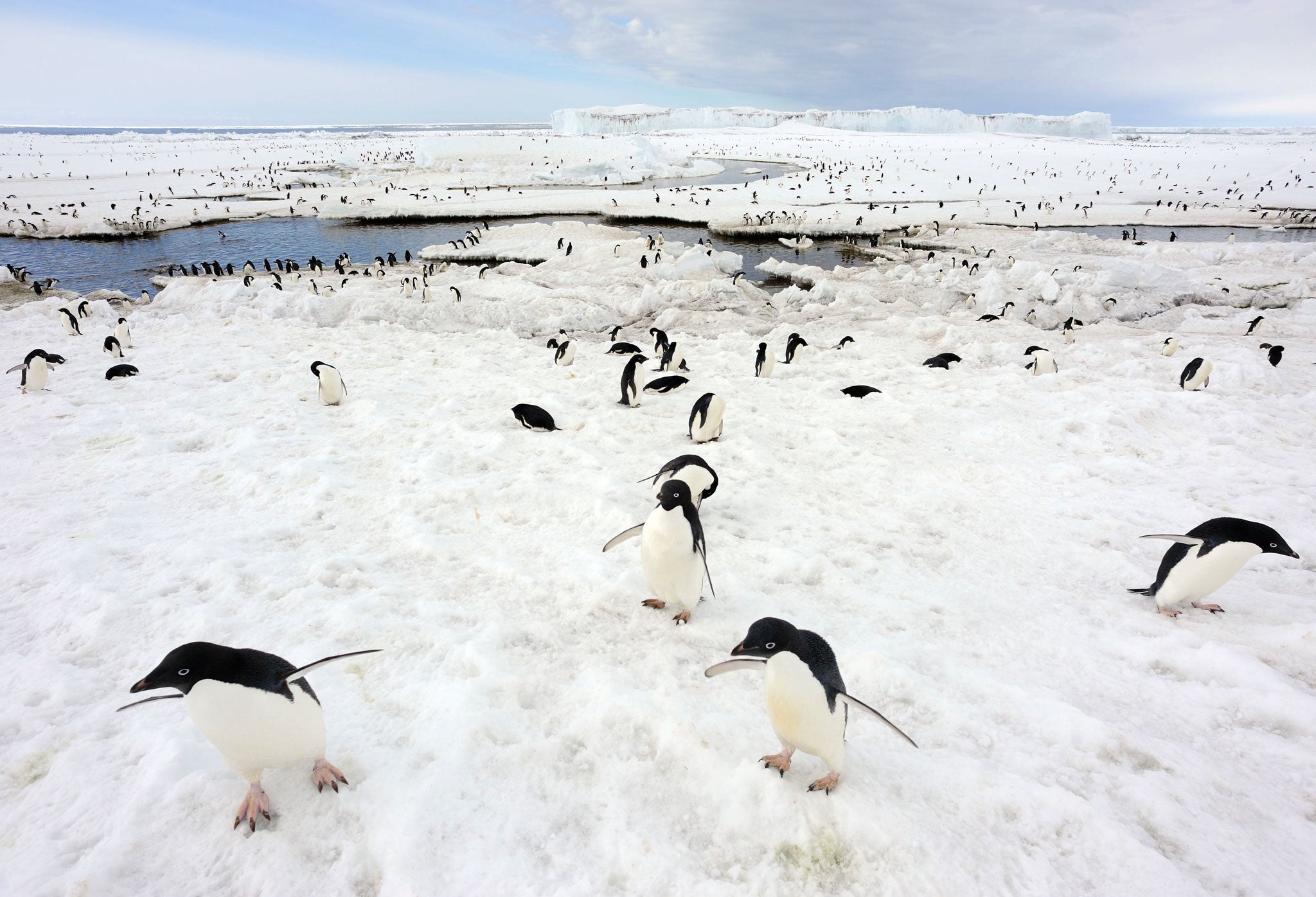150,000 penguins killed after colossal iceberg in Antarctica leaves colony landlocked
An iceberg the size of Rome has forced the penguins to trek 70 miles for food

Your support helps us to tell the story
From reproductive rights to climate change to Big Tech, The Independent is on the ground when the story is developing. Whether it's investigating the financials of Elon Musk's pro-Trump PAC or producing our latest documentary, 'The A Word', which shines a light on the American women fighting for reproductive rights, we know how important it is to parse out the facts from the messaging.
At such a critical moment in US history, we need reporters on the ground. Your donation allows us to keep sending journalists to speak to both sides of the story.
The Independent is trusted by Americans across the entire political spectrum. And unlike many other quality news outlets, we choose not to lock Americans out of our reporting and analysis with paywalls. We believe quality journalism should be available to everyone, paid for by those who can afford it.
Your support makes all the difference.A colony of Adelie penguins faces being wiped out after an iceberg the size of Rome became lodged in their bay.
An estimated 150,000 penguins of Cape Denison in Commonwealth Bay have been killed since the iceberg measuring 1,120 square miles - larger than Luxemberg - forced them to trek 70 miles for food.
The penguins used to live near a large body of open water, but the arrival of the iceberg in East Antarctica and fast ice expansion has dramatically increased the distance they must travel to feed.
The colony of 160,000 has shrunk to just 10,000 since 2011, according to research carried out by the Climate Change Research Centre at Australia’s University of New South Wales.
Penguins have been recorded at Cape Dension for more than 100 years, but the outlook for the penguins remaining in the area is dire.
Scientists predict the colony will be gone in 20 years unless the sea ice breaks up or the giant iceberg, dubbed B09B, is dislodged.
"The Cape Dencion population could be extirpated within 20 years unless B09B relocates or now perennial fast ice within the bay breaks out," said researchers in an article in Antarctica Science.
"This has provided a natural experiment to investigate the impact of iceberg stranding events and sea ice expansion along the East Antarctic coast."
Join our commenting forum
Join thought-provoking conversations, follow other Independent readers and see their replies
Comments